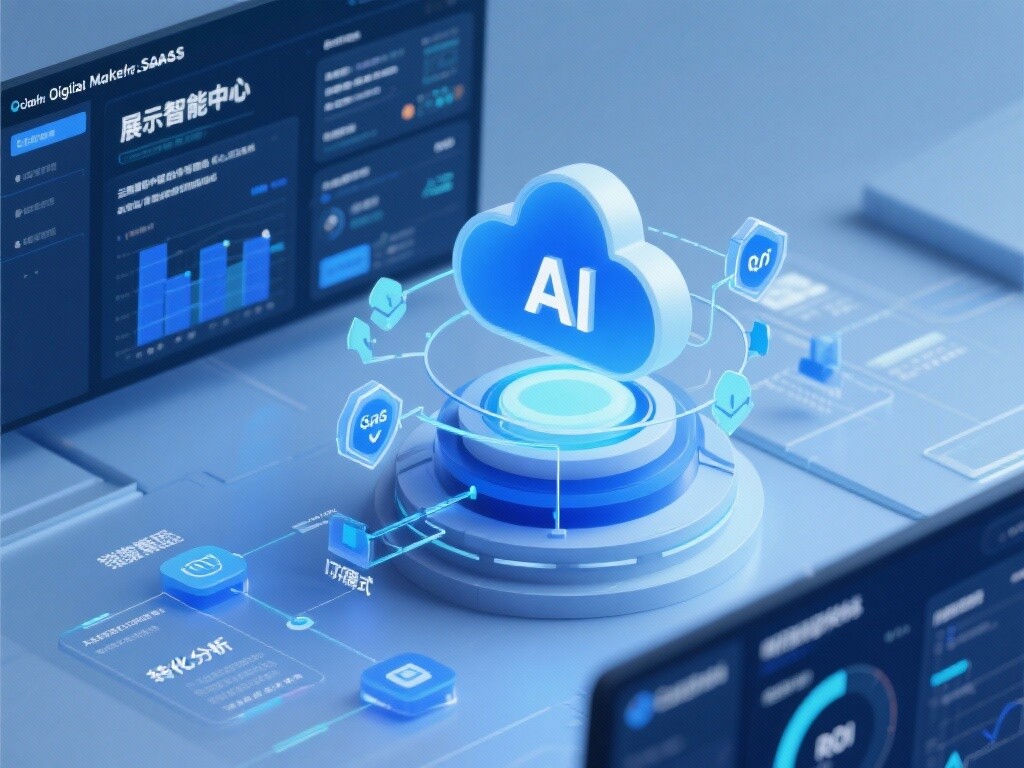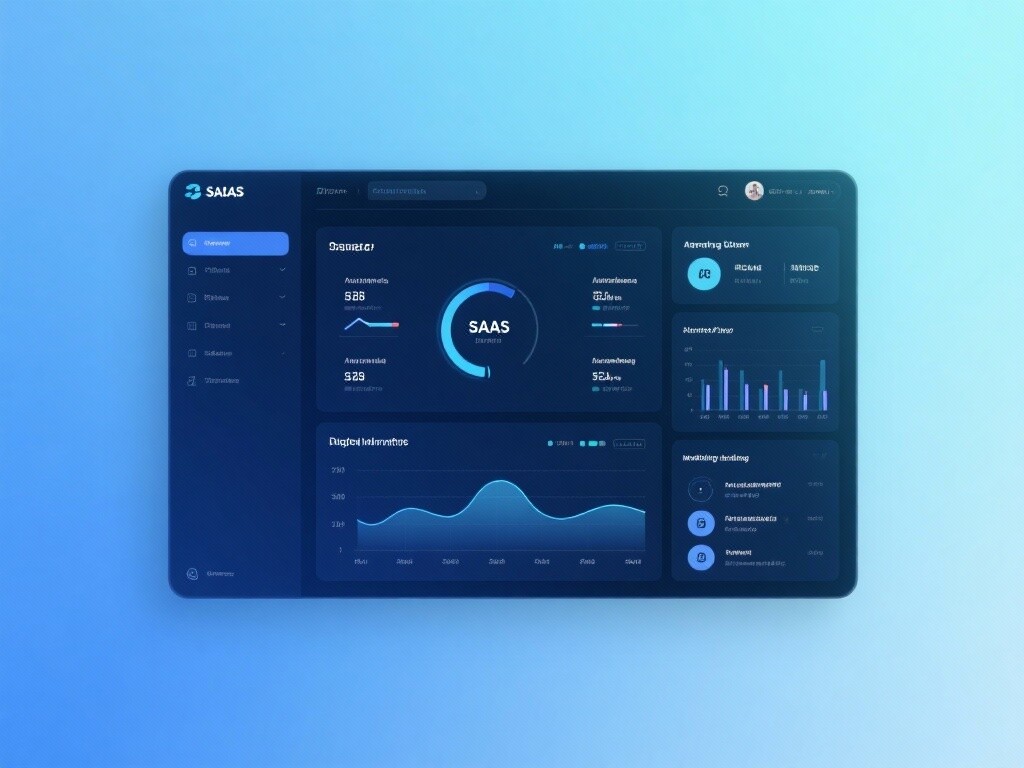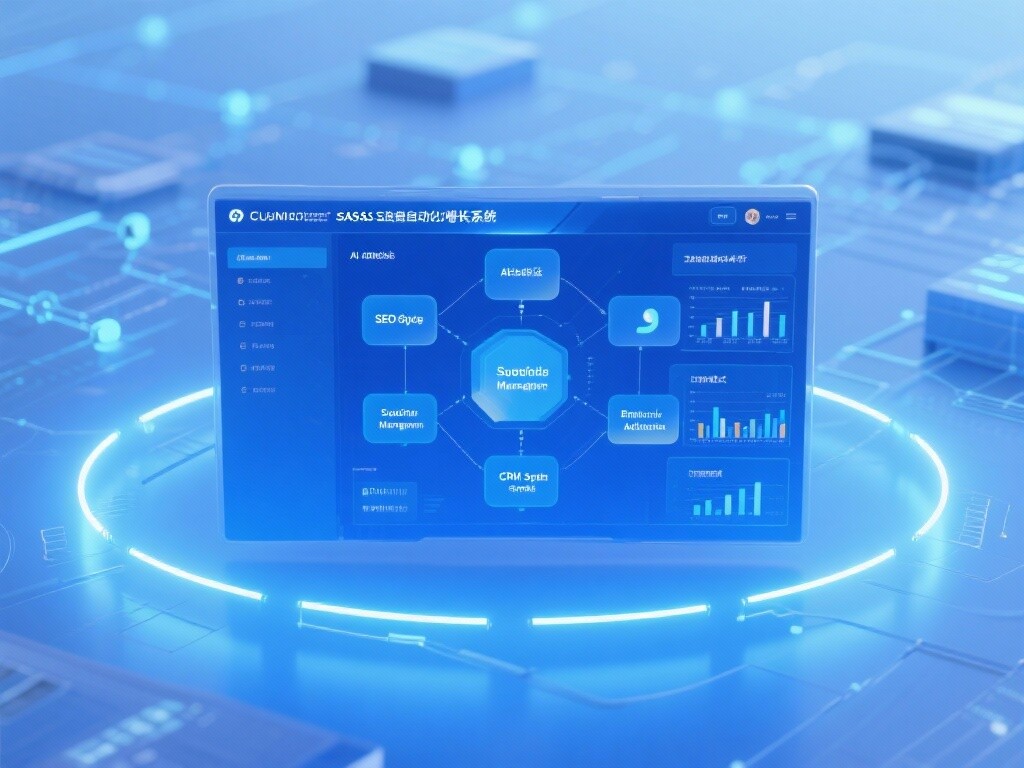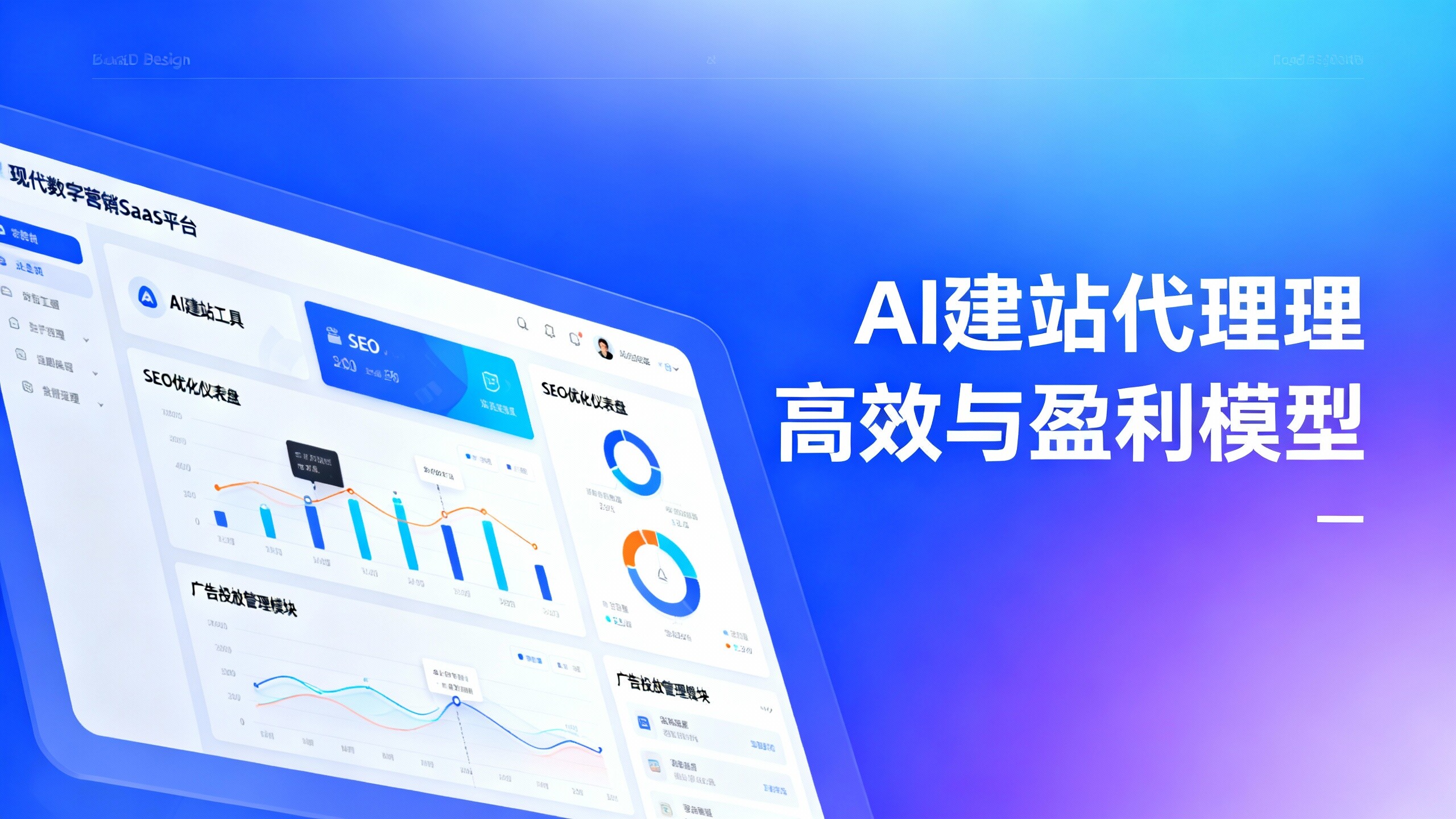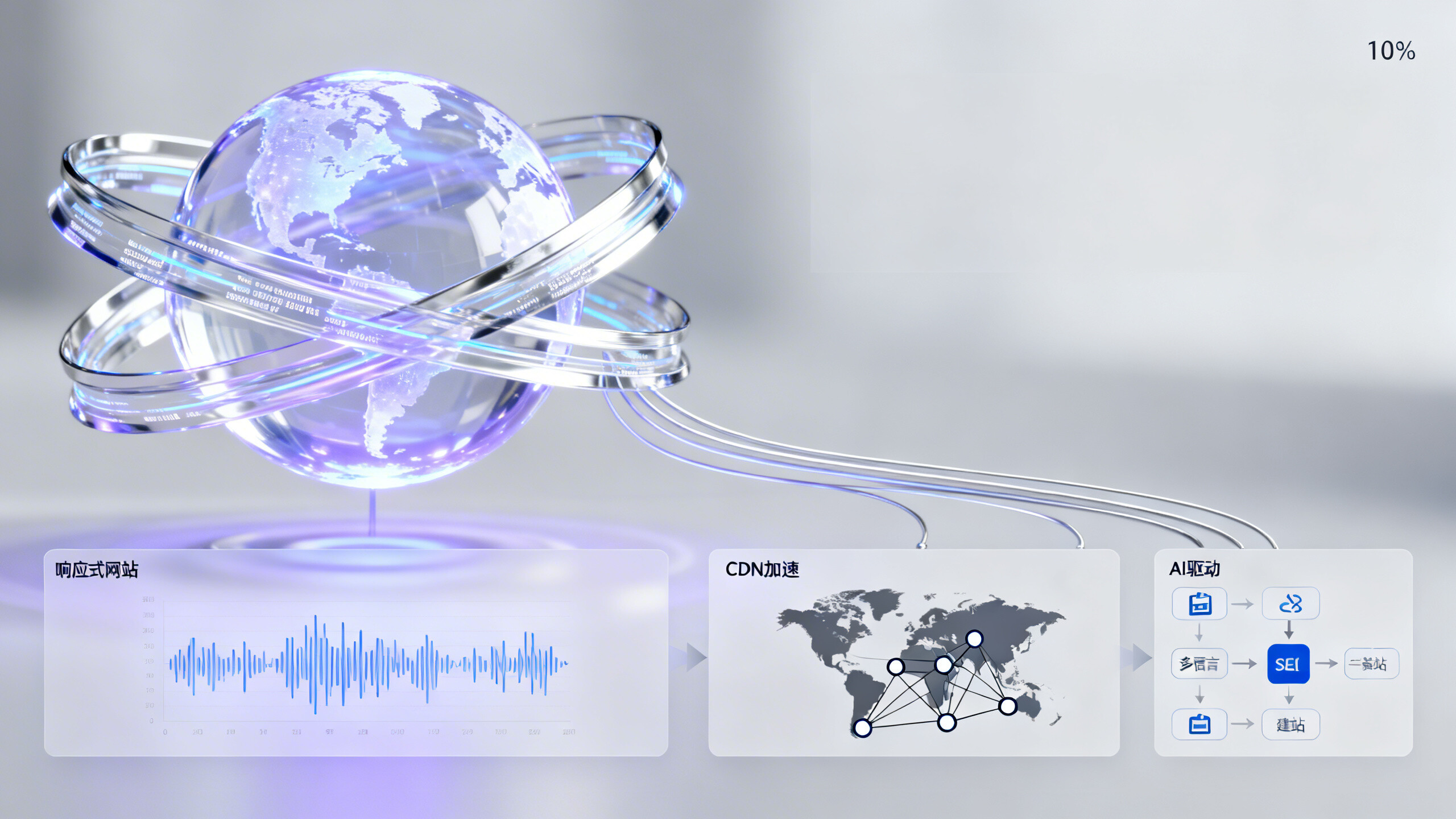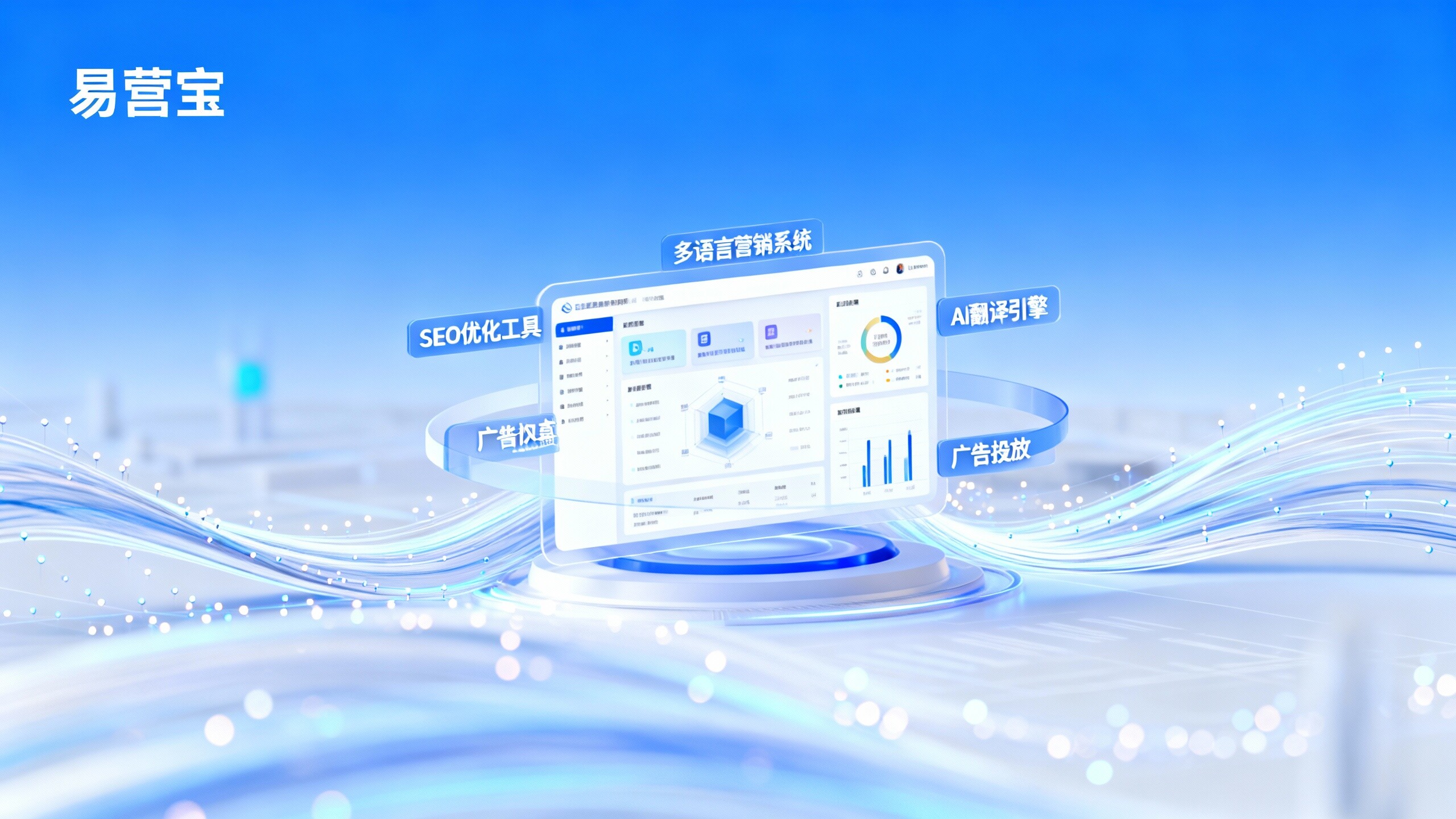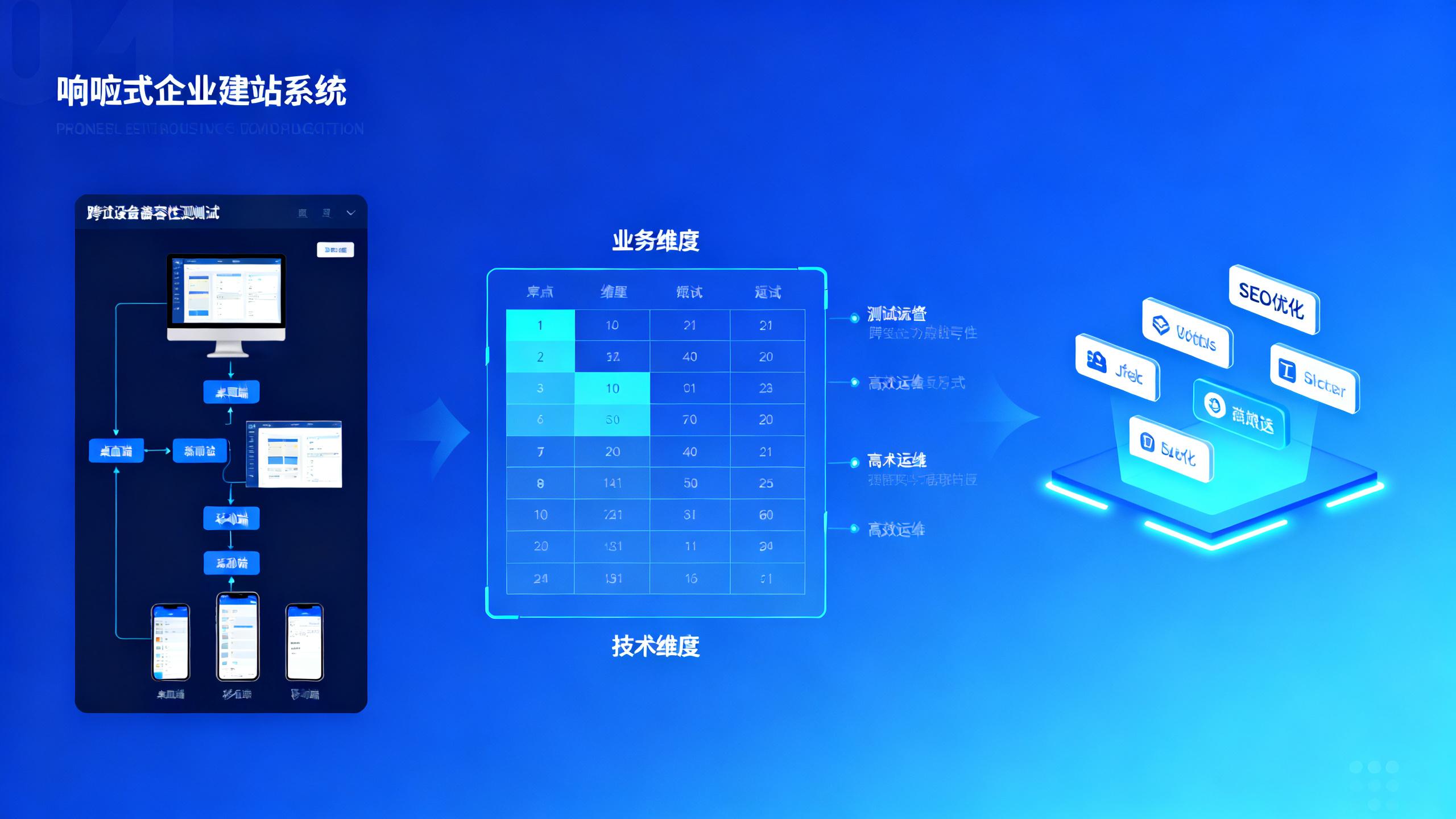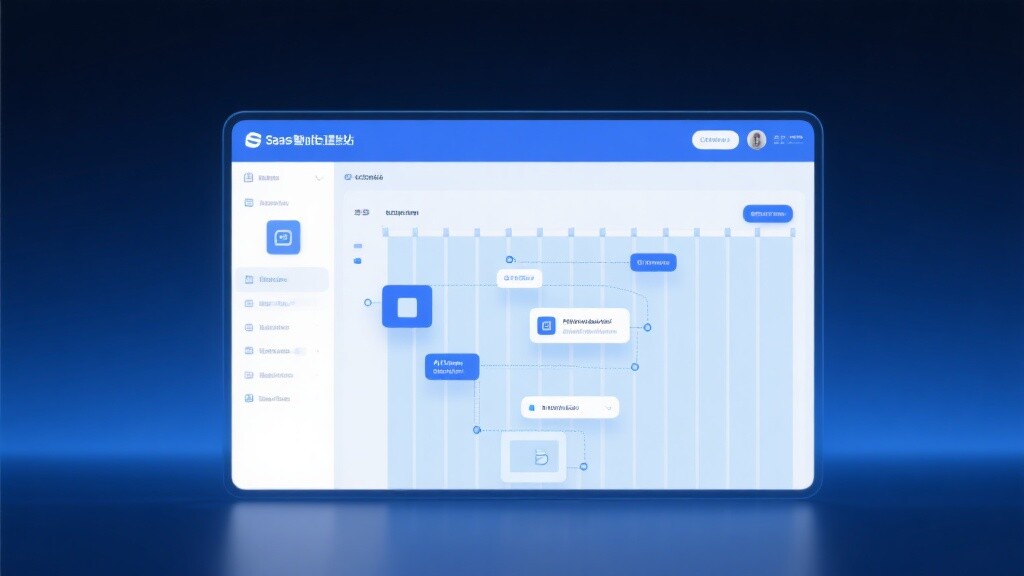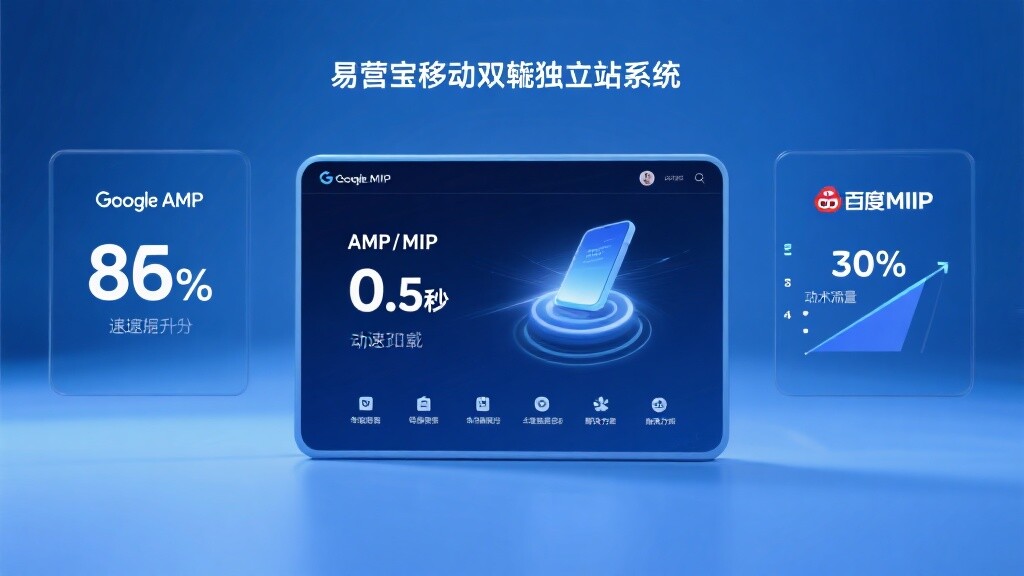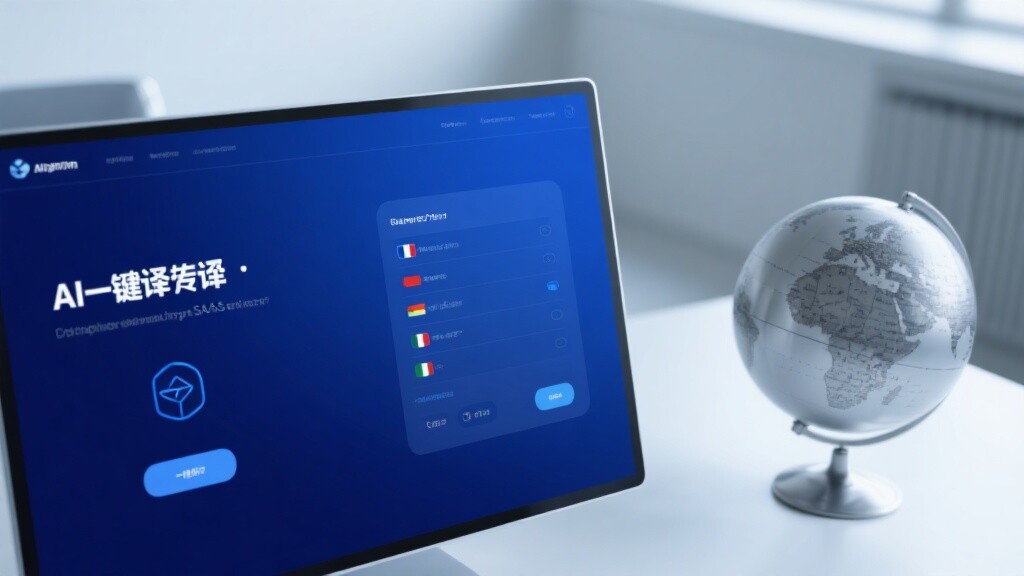I. The Authoritative Definition and Core Value of Digital Marketing SaaS
1. The Authoritative Definition of Digital Marketing SaaS
Digital Marketing SaaS refers to a series of software tools and services provided via the internet for businesses and marketing professionals, used to plan, execute, manage, analyze, and optimize their digital marketing activities. Unlike traditional software, SaaS is built on a cloud computing architecture, where users access it via a subscription model on demand, eliminating the need for installation, hardware maintenance, or software upkeep. It encompasses most tools within the MarTech (Marketing Technology) ecosystem, including CRM, marketing automation, content management, data analytics, and advertising technology.
2. The Strategic Core Value of Digital Marketing SaaS
II. The Evolution of Digital Marketing SaaS: From Standalone Tools to Intelligent Integrated Platforms
The history of Digital Marketing SaaS traces the progression of marketing technology from isolated tools addressing single pain points to fully integrated, AI-driven intelligent platforms.
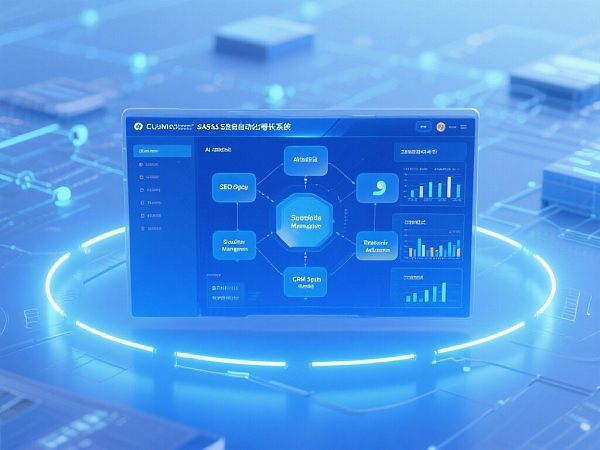
1. Early Stage: Single-Point Functions and Hosted Software (2000s-2010)
Technical Features: The SaaS concept emerged, primarily solving single, vertical functions, such as early email blasting tools and basic CRM.
Development Focus: Mainly involved migrating traditional software to the web, addressing installation and maintenance issues, but lacking integration between tools.
Limitations: Data silos required marketers to switch between multiple independent systems and export data.
2. Marketing Automation (MA) and Platformization (2010-2016)
Milestones: The rise of Marketing Automation (MA) platforms, such as HubSpot and Marketo.
Technological Shift: Platforms began integrating email marketing, lead scoring, and content management, forming preliminary all-in-one solutions. The goal was to manage the entire customer lifecycle.
Challenges: Platform features became complex, with high learning costs, and integration capabilities remained limited.
3. AI/Big Data-Driven and Ecosystem Integration (2016-Present)
Core Focus: AI and machine learning deeply embedded in SaaS, enabling smart pricing, content recommendations, chatbots, and personalized customer journeys.
Technological Advancements: SaaS platforms emphasized seamless API integration with external platforms like Google Ads, Meta Ads, and GA4, forming open MarTech ecosystems.
Trends: Platforms moved toward verticalization and specialization, such as SaaS solutions tailored for social commerce, B2B lead generation, or specific industries, with competition shifting to data processing and AI intelligence.
III. The Technical Principles of Digital Marketing SaaS: Three Foundational Technological Pillars
The power of Digital Marketing SaaS stems from its modular, scalable architecture based on cloud computing, big data, and artificial intelligence.
1. Cloud Computing and Multi-Tenant Architecture
Principle: All users share a single set of core code, application instances, and infrastructure, but data is isolated.
Core Technologies:
AWS/GCP/Azure Infrastructure: Provides high availability, elastic scalability, and global deployment capabilities.
Multi-Tenant Data Isolation: Uses logical isolation to ensure absolute security and non-interference between different enterprise users.
Automatic Updates and Iterations: Due to shared code, SaaS platforms can perform unified, real-time, seamless software upgrades and feature iterations for all users.
2. Big Data Integration and API Interfaces
Principle: SaaS platforms capture, clean, and integrate multi-source data from Google Ads, GA4, CRM, social media, etc., via standardized API interfaces.
Core Technologies:
API Gateway Management: Securely and efficiently handles high-concurrency cross-platform data requests and transfers.
ETL (Extract, Transform, Load) Workflow: Ensures unstructured, differently formatted data is converted into unified, analyzable models for smart decision-making.
Data Lakes and Data Warehouses: Establishes traceable, analyzable underlying data storage structures.
3. Artificial Intelligence and Machine Learning (AI/ML Engine)
Principle: Leverages AI algorithms to analyze vast historical data, enabling automated, predictive, and personalized marketing decisions.
Core Technologies:
Predictive Analytics: ML models predict lead conversion rates, customer churn risks, LTV (Customer Lifetime Value), guiding resource allocation.
Natural Language Generation (NLG)/Processing (NLP): Used for automated email copywriting, blog titles, or analyzing user feedback and sentiment monitoring.
Smart Workflows: Automated workflows triggered by user behavior, such as **"Users who visit the pricing page 3 times automatically receive a promotional email"**.
IV. The Core Features and Strategic Advantages of Digital Marketing SaaS
1.End-to-End Integration and Visualized Management
Features: Unlike standalone tools, SaaS provides a one-stop solution covering traffic capture, lead nurturing, and conversion analysis.
Advantages: Eliminates data silos, enabling marketing teams to monitor all channel performance on a single interface, achieving panoramic data insights.
2. Extreme Agility and Rapid Deployment
Features: SaaS software requires no complex on-premise deployment or IT resource investment.
Advantages: Account registration and feature activation can be completed in minutes, allowing businesses to respond swiftly to market changes and achieve agile marketing.
3. Continuous Innovation Under the Subscription Model
Features: Vendors drive ongoing product R&D and feature updates through recurring subscription revenue.
Advantages: Users always access the latest, most powerful software versions without bearing high upgrade costs.
4. Robust Community Support and Learning Resources
Features: Leading SaaS platforms typically have vast user communities, rich online courses, and knowledge bases.
Advantages: Reduces team learning costs, helping businesses quickly master industry best practices.
V. Deep Applications and Practical Scenarios of Digital Marketing SaaS
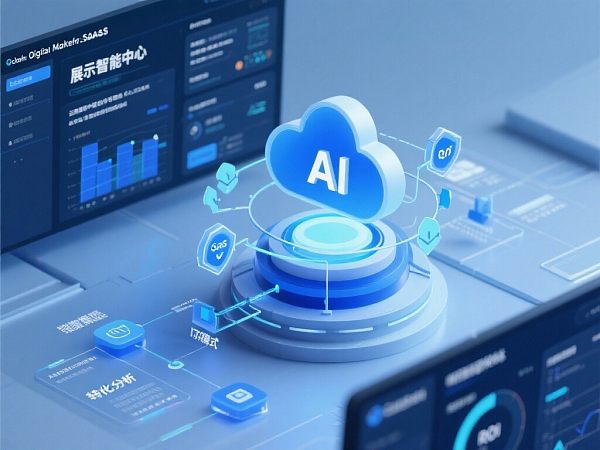
1.B2B Enterprise Lead Nurturing and Conversion
Application: Automates the entire process from **prospects to sales-qualified leads (SQLs)**.
Practice: Uses SaaS platform lead scoring to automatically score leads based on website behavior, email open rates, content downloads, etc. When scores reach preset thresholds, the system notifies sales teams for follow-up, ensuring resources focus on highest-intent customers.
2. DTC/E-Commerce Customer Lifecycle Management (LTV)
Application: Enhances customer loyalty and repurchase rates through personalized content and automated workflows.
Practice: Uses SaaS CRM modules to segment customer groups (e.g., "users who haven’t purchased in 60 days", "high-value members"). Sets up automated workflows to send personalized recommendation emails or birthday discounts at specific times (e.g., days post-purchase), achieving customer relationship maintenance and LTV growth.
3. Multi-Channel Content Publishing and Social Media Management
Application: Manages content publishing, engagement, and performance monitoring across Facebook, Instagram, X (Twitter), LinkedIn, and other overseas social channels.
Practice: Uses SaaS unified content calendars for scheduled publishing. Monitors all platform comments, DMs, and brand mentions in real-time, enabling efficient, timely customer interactions and crisis PR via automated chatbots or centralized dashboards.
4. SEO and Content Marketing Synergistic Automation
Application: Uses SaaS tools to drive and optimize SEO and content strategies.
Practice: Uses SaaS keyword research tools to discover high-value, low-competition long-tail keywords. Leverages content optimization modules to ensure articles meet E-E-A-T standards. Automatically monitors post-publishing ranking changes and traffic growth, achieving scientific, scalable content production.
VI. EasyProfit: Your End-to-End Digital Marketing SaaS Empowerment Expert
EasyProfit specializes in helping businesses select, deploy, and deeply customize the top-tier Digital Marketing SaaS solutions best suited to their operations, ensuring SaaS platforms **convert 100% into real commercial value**.
SaaS Selection and Strategic Planning: Provides the most professional, impartial recommendations for CRM, MA, SEO SaaS, etc., based on your industry characteristics, market stage, and budget.
Data Integration and Closed-Loop Deployment: Expert teams offer **GA4, CAPI, CRM** API-level seamless integration services, ensuring your data loop is accurate, fueling AI optimization for SaaS platforms.
Workflow Automation and Customization: Helps design and deploy complex, behavior-triggered marketing automation workflows, elevating your marketing processes to AI-driven efficiency levels.
Team Training and Knowledge Transfer: Offers systematic SaaS platform operation training, ensuring your team can independently, efficiently operate and leverage this intelligent tool.
FAQ
1. What is the biggest difference between digital marketing SaaS and traditional on-premise software?
Answer: The biggest differences lie in deployment, cost, and update models.
SaaS: Based on cloud computing , accessible via the internet , with monthly/yearly subscriptions (Opex), requiring no hardware or IT maintenance , and features are automatically updated in real time .
Local installation: The software is installed on the enterprise's local server , purchased once (Capex), requires a dedicated IT team for maintenance , and has a long update cycle . SaaS offers greater flexibility, lower initial costs, and faster innovation .
2. My company is relatively small. Is it necessary for me to use digital marketing SaaS?
Answer: Absolutely necessary. SaaS is a powerful tool for SMEs to achieve a leapfrog development.
Eliminating barriers: The SaaS subscription model enables small and medium-sized enterprises to use top-tier AI and automation tools that were previously only affordable to large enterprises at a lower cost .
Increase efficiency: Marketing automation features enable ** One marketing person completed The workload of people** greatly improves the efficiency and output of small teams .
3. How do you determine if a digital marketing SaaS platform is worth investing in?
Answer: The key lies in "data integration capabilities" and "AI intelligence".
Data integration capability: Check if it can seamlessly and reliably integrate with your existing CRM, Google Ads, GA4 and other systems at the API level.
AI Intelligence: Assess whether it provides **AI-driven features** such as predictive scoring, intelligent content recommendation, and automated workflows , rather than just simple task management.
Scalability: Ensures the platform can be upgraded as your business grows and is not locked into a single function .
4. How can digital marketing SaaS help me solve the problem of data silos across multiple channels?
Answer: SaaS platforms solve this by establishing a unified data model.
API Integration: The platform aggregates raw data from different channels (SEO, PPC, social media, email) into a central data warehouse via API .
Unified modeling: SaaS cleans, standardizes, and models this data at the underlying level, attributing customer behavior from different sources to the same customer ID .
Centralized analytics: Marketers can see a panoramic view of their customers on a single dashboard , enabling scientific attribution and ROI analysis across channels .
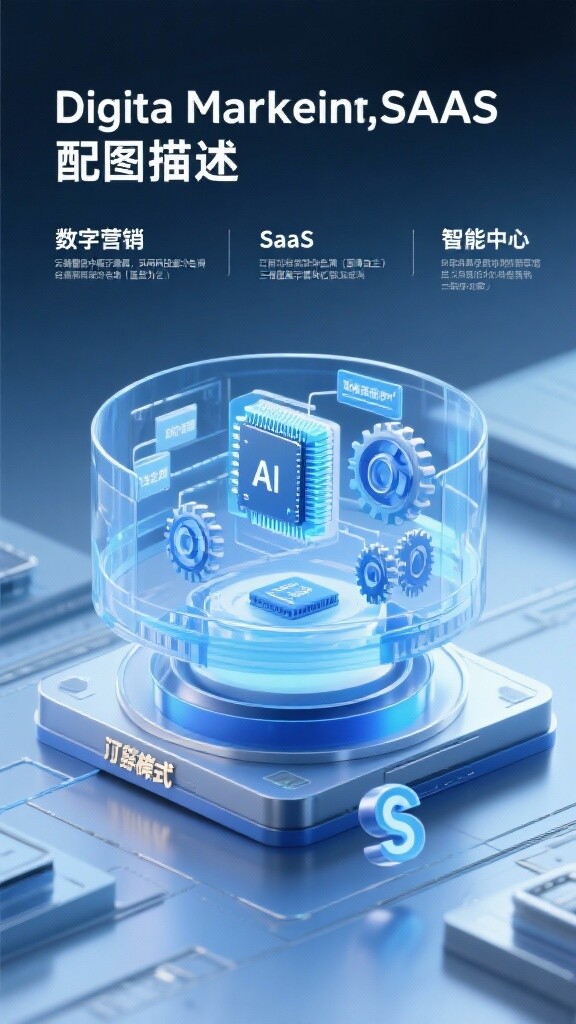
Customer Reviews
Mr. Zhang, Marketing Director of a B2B Industrial Technology Company
"We used the full-link marketing SaaS solution recommended by YiYingBao, which completely transformed our B2B customer acquisition efficiency. Through the SaaS platform's lead scoring and automated nurturing workflow , the number of our qualified sales leads (SQL) has increased significantly."Growth within months . More importantly, AI-powered intelligent scoring allows our sales team to focus on customers with the highest conversion potential , improving sales efficiency per employee. . Digital marketing SaaS is more than just software; it's the automated brain behind our sales growth .
Ms. Li, CEO of a cross-border DTC apparel brand
"As an e-commerce company, our biggest pain points are customer retention and repeat purchase rates . YiYingBao helped us deploy a CRM-centric SaaS platform and customize complex automated workflows for the customer lifecycle . Now, the system can automatically identify a customer's purchase stage and send personalized content and discounts . Our repeat purchase rate from existing customers has improved." of customer lifetime value (LTV) has been significantly explored . SaaS's data integration capabilities have allowed us to move beyond data silos and achieve truly intelligent operations .
![Recruitment of city partners: how much can you earn in a month by doing local website business? Practical cases Recruitment of city partners: how much can you earn in a month by doing local website business? Practical cases]() Recruitment of city partners: how much can you earn in a month by doing local website business? Practical casesAI station building agent support policy, SaaS agent and city partner program: for digital marketing SaaS, template website and responsive enterprise station building system, covering China's foreign trade station building, multi-language website building platform and global station building SaaS system scenarios. Provide reproducible profit model, SEO optimization expert-level practical path and real cases, help you assess the monthly income expectations, take support, reduce customer acquisition costs and rapid scale. Click to learn about joining the split and landing training, book an exclusive consultant and start a local website building business.
Recruitment of city partners: how much can you earn in a month by doing local website business? Practical casesAI station building agent support policy, SaaS agent and city partner program: for digital marketing SaaS, template website and responsive enterprise station building system, covering China's foreign trade station building, multi-language website building platform and global station building SaaS system scenarios. Provide reproducible profit model, SEO optimization expert-level practical path and real cases, help you assess the monthly income expectations, take support, reduce customer acquisition costs and rapid scale. Click to learn about joining the split and landing training, book an exclusive consultant and start a local website building business.![How to Choose a B2B Foreign Trade Website? 2024 High Conversion + Global CDN Acceleration All-in-One Solution Comparison How to Choose a B2B Foreign Trade Website? 2024 High Conversion + Global CDN Acceleration All-in-One Solution Comparison]() How to Choose a B2B Foreign Trade Website? 2024 High Conversion + Global CDN Acceleration All-in-One Solution ComparisonB2B Foreign Trade Website First Choice! Global CDN Acceleration + Responsive Website SEO Optimization + AI Website Agent Support, All-in-One Marketing Platform Boosts Overseas Conversion. Guangzhou/Multilingual City Partners Recruitment in Progress!
How to Choose a B2B Foreign Trade Website? 2024 High Conversion + Global CDN Acceleration All-in-One Solution ComparisonB2B Foreign Trade Website First Choice! Global CDN Acceleration + Responsive Website SEO Optimization + AI Website Agent Support, All-in-One Marketing Platform Boosts Overseas Conversion. Guangzhou/Multilingual City Partners Recruitment in Progress!![Is digital marketing SaaS worth purchasing? Analysis of ROI, delivery cycle, and after-sales support that enterprise decision-makers care most about Is digital marketing SaaS worth purchasing? Analysis of ROI, delivery cycle, and after-sales support that enterprise decision-makers care most about]() Is digital marketing SaaS worth purchasing? Analysis of ROI, delivery cycle, and after-sales support that enterprise decision-makers care most aboutB2B foreign trade website × global CDN acceleration × all-in-one marketing platform | In-depth analysis of digital marketing SaaS's real ROI, 72-hour delivery cycle, and three-tier after-sales support. Learn about Easy Operation City partner policies!
Is digital marketing SaaS worth purchasing? Analysis of ROI, delivery cycle, and after-sales support that enterprise decision-makers care most aboutB2B foreign trade website × global CDN acceleration × all-in-one marketing platform | In-depth analysis of digital marketing SaaS's real ROI, 72-hour delivery cycle, and three-tier after-sales support. Learn about Easy Operation City partner policies!![Does the Easy Operation Treasure agency alliance policy include technical product control support? Security management personnel pay the most attention to compliance regulations and data isolation instructions. Does the Easy Operation Treasure agency alliance policy include technical product control support? Security management personnel pay the most attention to compliance regulations and data isolation instructions.]() Does the Easy Operation Treasure agency alliance policy include technical product control support? Security management personnel pay the most attention to compliance regulations and data isolation instructions.B2B foreign trade website × global CDN acceleration × one-stop marketing platform! The Easy Operation Treasure agency alliance policy includes compliance regulations, data isolation, and AI website agency support, with technical product control support for partners in Guangzhou/multilingual cities.
Does the Easy Operation Treasure agency alliance policy include technical product control support? Security management personnel pay the most attention to compliance regulations and data isolation instructions.B2B foreign trade website × global CDN acceleration × one-stop marketing platform! The Easy Operation Treasure agency alliance policy includes compliance regulations, data isolation, and AI website agency support, with technical product control support for partners in Guangzhou/multilingual cities.![How does EasyBiz multilingual marketing system compare to traditional foreign trade standalone site tools? How does EasyBiz multilingual marketing system compare to traditional foreign trade standalone site tools?]() How does EasyBiz multilingual marketing system compare to traditional foreign trade standalone site tools?How does EasyBiz multilingual marketing system perform? A comprehensive analysis of multilingual foreign trade website suitability for SMEs and multilingual website SEO optimization methods, helping businesses build high-conversion websites at low cost and achieve global digital marketing upgrades.
How does EasyBiz multilingual marketing system compare to traditional foreign trade standalone site tools?How does EasyBiz multilingual marketing system perform? A comprehensive analysis of multilingual foreign trade website suitability for SMEs and multilingual website SEO optimization methods, helping businesses build high-conversion websites at low cost and achieve global digital marketing upgrades.![How about EYB? 3 or 5 stars from a first-line operator after a personal test? How about EYB? 3 or 5 stars from a first-line operator after a personal test?]() How about EYB? 3 or 5 stars from a first-line operator after a personal test?How about EYB? The first-line operation of the actual test intelligent station-building platform review, in-depth analysis of the EYB function analysis and comparison of competitors, to see how AI helps enterprises to go to sea, 3-star or 5-star? Click to reveal the real experience!
How about EYB? 3 or 5 stars from a first-line operator after a personal test?How about EYB? The first-line operation of the actual test intelligent station-building platform review, in-depth analysis of the EYB function analysis and comparison of competitors, to see how AI helps enterprises to go to sea, 3-star or 5-star? Click to reveal the real experience!![AI building agent support policy in the end is it worth it? Three major subsidies analysis and entry threshold AI building agent support policy in the end is it worth it? Three major subsidies analysis and entry threshold]() AI building agent support policy in the end is it worth it? Three major subsidies analysis and entry thresholdAnalysis of AI website building agent support policy: for SaaS agents and city partners, comprehensively dismantle the three major subsidies (capital, marketing, technology), entry thresholds and costing. Covering digital marketing SaaS, SEO optimization experts, template websites and China foreign trade website building, responsive enterprise website building system, multilingual website building platform and global website building SaaS system, it helps you quantify the impact of subsidies on CAC and LTV, identify compliance and data security risks, and give you a list of executable pilots and exits. Want to quickly determine if the support is worth it? Click to get customized measurement and landing consultation.
AI building agent support policy in the end is it worth it? Three major subsidies analysis and entry thresholdAnalysis of AI website building agent support policy: for SaaS agents and city partners, comprehensively dismantle the three major subsidies (capital, marketing, technology), entry thresholds and costing. Covering digital marketing SaaS, SEO optimization experts, template websites and China foreign trade website building, responsive enterprise website building system, multilingual website building platform and global website building SaaS system, it helps you quantify the impact of subsidies on CAC and LTV, identify compliance and data security risks, and give you a list of executable pilots and exits. Want to quickly determine if the support is worth it? Click to get customized measurement and landing consultation.![Responsive Enterprise Website Builder System Import Guide: Compatibility Testing and FAQ Checklist Responsive Enterprise Website Builder System Import Guide: Compatibility Testing and FAQ Checklist]() Responsive Enterprise Website Builder System Import Guide: Compatibility Testing and FAQ ChecklistResponsive enterprise website builder system import guide, covering compatibility testing, cross-device and multi-language localization for multi-language website building platforms and global website building SaaS systems. Combined with AI's website building agent support policy, SaaS agent and city partner's practical experience, we provide digital marketing SaaS and SEO optimization expert advice to help China's foreign trade websites and template websites to quickly go online and improve conversion. Click to get the exclusive test list and cooperation program.
Responsive Enterprise Website Builder System Import Guide: Compatibility Testing and FAQ ChecklistResponsive enterprise website builder system import guide, covering compatibility testing, cross-device and multi-language localization for multi-language website building platforms and global website building SaaS systems. Combined with AI's website building agent support policy, SaaS agent and city partner's practical experience, we provide digital marketing SaaS and SEO optimization expert advice to help China's foreign trade websites and template websites to quickly go online and improve conversion. Click to get the exclusive test list and cooperation program.
![EasyStore Global Server Deployment EasyStore Global Server Deployment]() EasyStore Global Server DeploymentEasyStore Global Server Deployment for Foreign Trade Independent Websites, making your website faster than competitors! EasyStore covers 7 major continents with global server nodes, providing high-speed and stable multi-language independent website deployment solutions for foreign trade enterprises, ensuring instant webpage loading for global users, improving conversion rates, and reducing operational costs.
EasyStore Global Server DeploymentEasyStore Global Server Deployment for Foreign Trade Independent Websites, making your website faster than competitors! EasyStore covers 7 major continents with global server nodes, providing high-speed and stable multi-language independent website deployment solutions for foreign trade enterprises, ensuring instant webpage loading for global users, improving conversion rates, and reducing operational costs.![EasyYunBao SaaS Intelligent Website Building and Marketing System EasyYunBao SaaS Intelligent Website Building and Marketing System]() EasyYunBao SaaS Intelligent Website Building and Marketing SystemEasyYunBao SaaS Intelligent Website Building and Marketing System, AI-driven zero-code website construction, build a multilingual foreign trade independent website in just 10 minutes, global server acceleration, AI-powered SEO optimization, helping enterprises efficiently connect to global markets. The perfect integration of technology and operation makes foreign trade website building simple to the extreme.
EasyYunBao SaaS Intelligent Website Building and Marketing SystemEasyYunBao SaaS Intelligent Website Building and Marketing System, AI-driven zero-code website construction, build a multilingual foreign trade independent website in just 10 minutes, global server acceleration, AI-powered SEO optimization, helping enterprises efficiently connect to global markets. The perfect integration of technology and operation makes foreign trade website building simple to the extreme.![EasyYunbao AMP/MIP Mobile Intelligent Website Building EasyYunbao AMP/MIP Mobile Intelligent Website Building]() EasyYunbao AMP/MIP Mobile Intelligent Website BuildingEasyYunbao Mobile Dual-Engine Independent Website System, supports independent creation of Google AMP multilingual mobile websites and Baidu MIP Chinese mobile websites, achieving millisecond-level loading through official acceleration technologies from Google and Baidu, improving search rankings and conversion rates, covering the two major global mobile search ecosystems.
EasyYunbao AMP/MIP Mobile Intelligent Website BuildingEasyYunbao Mobile Dual-Engine Independent Website System, supports independent creation of Google AMP multilingual mobile websites and Baidu MIP Chinese mobile websites, achieving millisecond-level loading through official acceleration technologies from Google and Baidu, improving search rankings and conversion rates, covering the two major global mobile search ecosystems.![AI+SEO Dual-Engine System Optimization Service AI+SEO Dual-Engine System Optimization Service]() AI+SEO Dual-Engine System Optimization ServiceE-Yingbao AI+SEO Dual-Engine Optimization System leverages AI-powered keyword mining, content generation, and comprehensive technical optimization to help export-oriented enterprises capture high-quality organic traffic, significantly boosting search rankings and conversion rates.
AI+SEO Dual-Engine System Optimization ServiceE-Yingbao AI+SEO Dual-Engine Optimization System leverages AI-powered keyword mining, content generation, and comprehensive technical optimization to help export-oriented enterprises capture high-quality organic traffic, significantly boosting search rankings and conversion rates.![EasyYunbao AI Translation Center EasyYunbao AI Translation Center]() EasyYunbao AI Translation CenterEasyYunbao AI Translation Center: Empowering multilingual standalone websites, enabling seamless global communication. Integrates Google Neural Machine Translation technology to generate multilingual websites with one click, achieving intelligent localization for foreign trade standalone sites and enhancing global market competitiveness.
EasyYunbao AI Translation CenterEasyYunbao AI Translation Center: Empowering multilingual standalone websites, enabling seamless global communication. Integrates Google Neural Machine Translation technology to generate multilingual websites with one click, achieving intelligent localization for foreign trade standalone sites and enhancing global market competitiveness.

